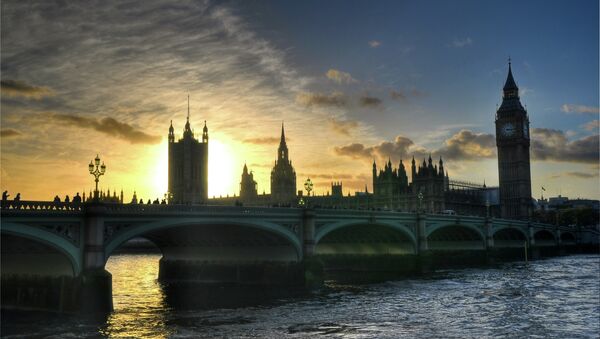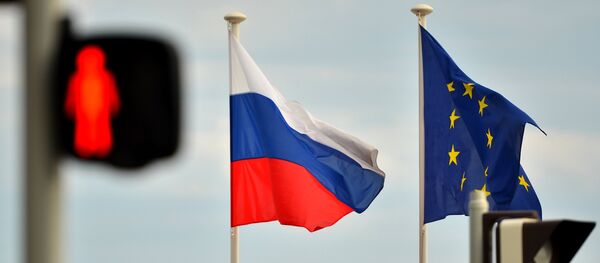Prefacing his appeal by noting that he was born in Communist-occupied Poland, which came into existence "because the old guard at the Kremlin had [then] decreed that there had to be a series of buffer states between themselves and the West," Kawczynski explained that he had no love lost for Russia.
Nonetheless, the MP explained that "for all that, I believe that we might now be antagonizing the Russian bear too much." Emphasizing that "these are words I could never have imagined writing in my wildest dreams as a young man," and wary that his position "may raise eyebrows," the politician explained that "there are significant figures in the [British] military establishment –including Lord Richards, the former chief of the defense staff –who believe, given the strength of Moscow's convictions and its historical propensity to accept pain in the perceived national interest, that an increased escalation will not work and could indeed be more damaging to Great Britain than to Russia."
In this light, Kawczynski noted that while "it is important, of course, that militarily we always carry as big a stick as possible when it comes to Russia," it's important not to forget "the other part of Theodore Roosevelt's old dictum…the 'speaking softly'."
The MP noted that "not being on speaking terms –let alone trading terms –with a country as large and influential as Russia is simply not practical in a world that is crying out for global cooperation." Bringing forth the example of terrorism, Kawczynski noted that Britain and Russia "simply cannot afford not to stand united as fellow members of the UN Security Council" on the issue.
The Costs of Not Doing Business
Doing his best to toe the party line of Conservative Prime Minister David Cameron, Kawczynski carefully explained that while "our sanctions against Russia are of course understandable…they come at a huge cost to us. At this difficult time in the financial markets, with such instability in the Eurozone, we have to ask how much further we can afford to block British companies from trading with Russia."
The MP noted that earlier this month, he "submitted a written question in the Commons asking for an estimate of the lost revenue to the UK from the sanctions we have imposed against Russia both in terms of lost foreign direct investment and a loss of British exports."
Kawczynski noted that if sanctions continue, Prime Minister Cameron's ambitious plan to reach £1 trillion worth of exports by 2020 may become impossible to realize. With experts suggesting that the British economy will have trouble reaching 80 percent of that under the present circumstances, the MP noted that "it is hard honestly to see how we are going to fill this £200bn black hole in the exports target unless we start trading normally again with the Russian bear."
According to the Austrian Institute of Economic Research, which recently calculated that anti-Russian sanctions would cost Europe an estimated €92.34 billion in lost income, along with over 2.2 million in lost jobs, Britain, far from the hardest hit, stands to suffer up to 95,000 in lost jobs, together with a €6.175 billion hit to its GDP.


